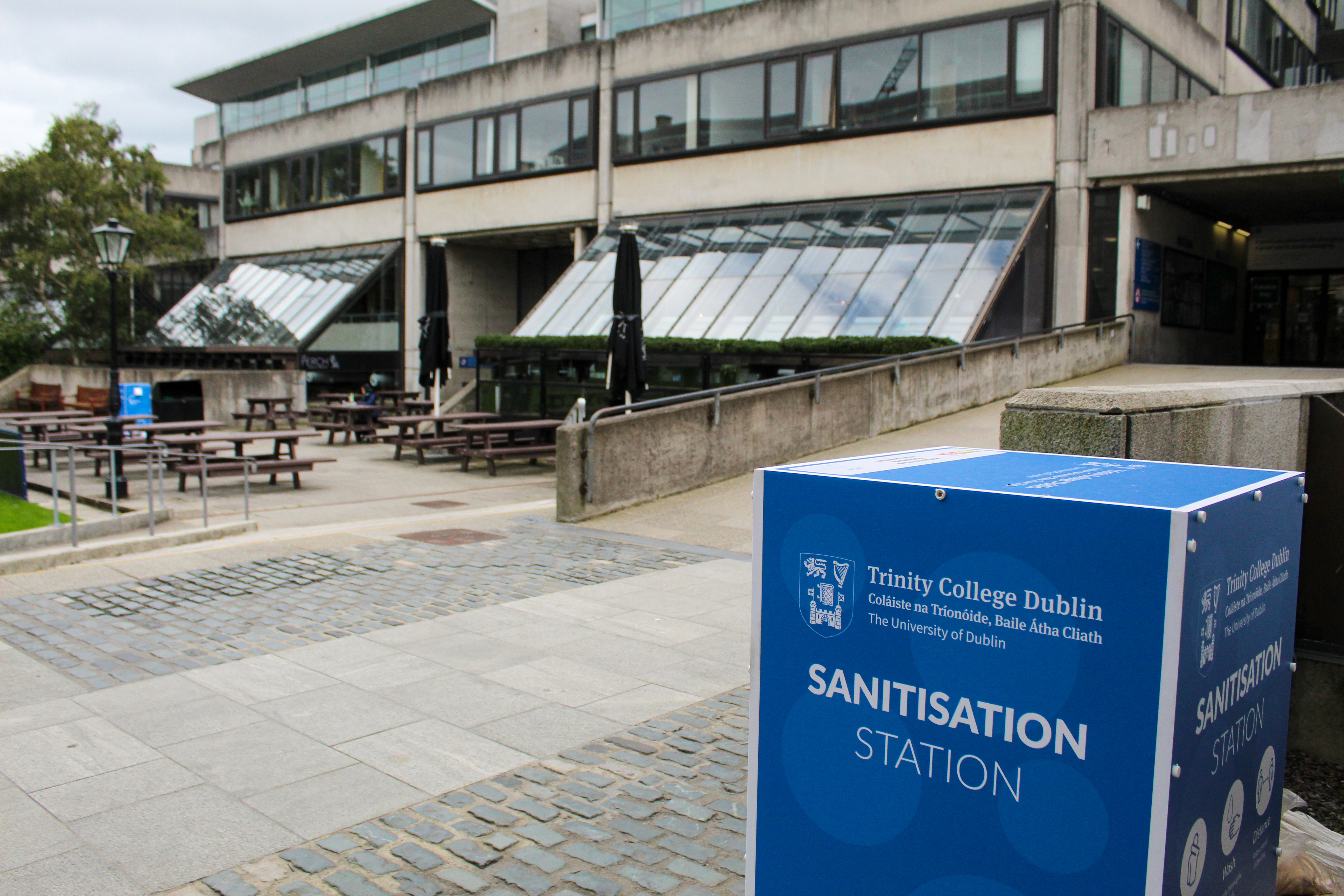Some teaching assistants have been told that they will be asked to clean and disinfect rooms in which tutorials are held during the academic semester, and that they will be permitted to ask students to assist with cleaning.
The teaching assistants are not expected to receive remuneration for the extra work or risk incurred.
Speaking to Trinity News, a TA from the School of English expressed concern after being told that teaching assistants would be expected to participate in the cleaning of rooms amid Covid-19.
“I didn’t do a PhD to become a cleaner. I didn’t do a PhD to be a casual worker without a contract,” she said.
“I didn’t do a PhD to put my life at risk for an institution whose prime concern seems to be money and not the well-being of its staff.”
Speaking to Trinity News, a second teaching assistant from the Faculty of Arts, Humanities and Social Sciences (AHSS) detailed his experience of the uncertain conditions in which teaching assistants within the faculty are expected to work during Covid-19.
Some non-permanent teaching staff in certain Schools have reported having not yet been allocated hours for Michaelmas Term tutorials.
“We do not know what form our teaching will take and we have not even received timetables or teaching hours yet, making it impossible to begin the preliminary work that is necessary to teach effectively,” the TA said.
This uncertainty has been further compounded by the introduction of new modules in some courses as part of the Trinity Education Project (TEP), the content of which has not been made available to casual teaching staff: “TEP is currently being rolled out in my subject, meaning numerous new modules have appeared for Senior Fresh students, and we may have to prepare to teach them in a very short period of time.”
This lack of communication, both from the College and Schools themselves, has been a point of contention for casual workers, with the TA deeming the hitherto scant correspondence “contradictory” and “confusing”.
Citing College’s over-reliance on social media in order to disseminate crucial information, he stated: “Information about the reopening has often been shared on social media before being sent to staff and students through more appropriate channels, making it feel as though the plans are largely a mere PR exercise.”
In January, Trinity News reported on the level to which teaching assistants feel “exploited” and “undervalued” in College.
The issues TAs cited included the precariousness of their employment status and concerns around the fact that they are employed without receiving their terms of employment in writing.
TAs are typically paid hourly and not guaranteed a fixed number of hours, and do not receive sick pay or a pension.
As the academic year approaches, some TAs are fearful of the repercussions of this lack of stability, especially regarding sick pay during the Covid-19 pandemic.
“We have seen what has happened in the meat-processing industry — people who are not guaranteed sick pay and who have no employment rights in black-and-white are forced to choose between a paycheck and their health,” one TA said.
A TA from the School of English expressed dissatisfaction with what she described as a “lack of solidarity” from her permanent counterparts.
“We are not ‘in this together’, as has been inferred therein,” she said.
“Permanent staff do not face the constant dread of signing on for Jobseeker’s Allowance, [or] feel the anxiety of still not knowing at this late stage whether they will be employed by the university or not.”
Earlier this year, College moved to cut pay rates for some casual staff, a decision that was later dropped by the Finance Committee.
A proposed pay cut for laboratory demonstrators would have seen their hourly pay drop from €21.02 to between €19 and €17, a potential decrease of around 20%.
Speaking to Trinity News, Chair of the TCD PhD Workers’ Rights Group Thomas Dinneen said that clear communication to TAs and lab demonstrators had not been made on a College-wide level.
“The return to college procedures for TAs and lab demonstrators is being handled on a school-by-school basis,” Dinneen said.
“Some schools have been very good at communicating with their TAs and lab demonstrators. For example, some have used surveys to gauge the availability and concerns of their TAs and lab demonstrators,” he said.
“Other schools have provided sparse/no communication around the matter. This leaves many PhDs, who depend on teaching and demo work, in a very financially vulnerable position and with concerns for their safety.”
“College has not provided any communication on this matter, leaving it to the individual schools. It is now September and there still has not been an official college communication to TAs and lab demonstrators specifically,” Dinneen said.
Guidance from the Department of Education on the return of on-site activity for further and higher education outlines that “new protocols” will be needed for campus and classroom cleaning services.
These include twice-daily cleaning of surfaces such as “table tops, work equipment, door handles and handrails implement thorough and regular cleaning of frequently touched surfaces”.
“Institutions may facilitate cleaning services by minimizing the changeover of students where possible and the management of timetables to reduce movement by staff and students between teaching areas,” the guidelines state.
“Shared equipment (for example: computers, printers and so on), by the nature of their use, would benefit from additional cleaning and institutions may consider requesting users to clean such equipment before and after each use.”






